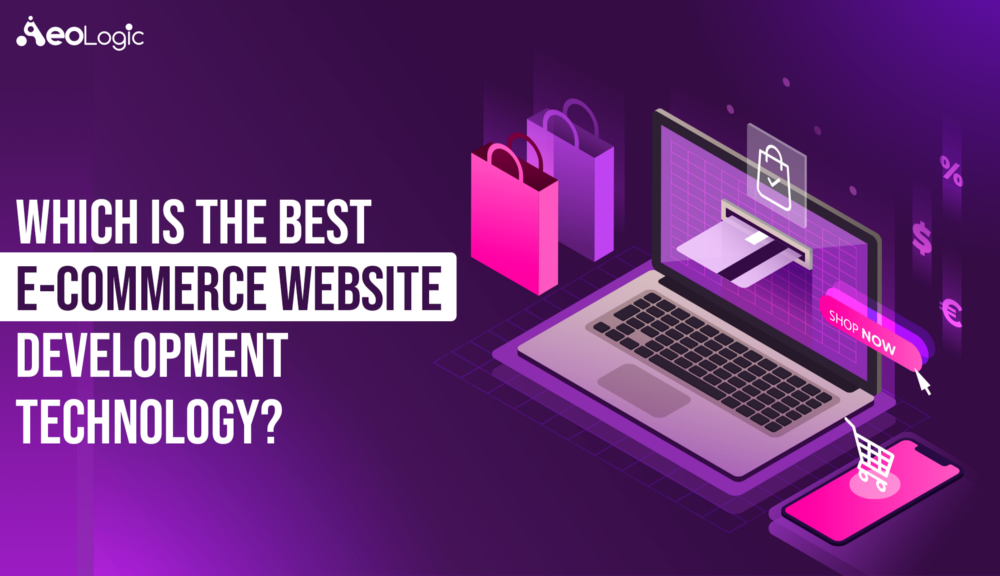The IT industry has seen a major shift in how it operates as a business and its marketing strategies. It is crucial for all businesses to build a rapport not only with their present and prospective clients. To do so, websites and apps have become a vital tool for all corporate and business entities to exhibit their services, goods, and purpose. A well-designed website/app could make all the difference in today’s marketplace. The modern-day E-commerce web technologies have achieved a height where businesses are not required to design or develop eCommerce web or apps right from scratch.
In this article, we will go through some of the best and the most trending e-commerce website development technologies. Let’s begin.
Magento
Magento is one of the most popular and widely used e-commerce technology. It is the most dependable E-commerce platforms when it comes to B2B & B2C customers. Magento is a very strong SEO friendly platform with lots of functions that can be customized easily. It has the ability to integrate with third-party products & services, which makes it one of the favorites among the community of customers. Big brands like Burger King, Huawei, Pepe Jeans & Liverpool F.C. already have their online stores built on Magento.
Top Advantages
- Free Technology- Unless your website is a huge e-commerce site, you can easily keep up with the free version of Magento. And of course, the free version of Magento is open-source but that doesn’t mean it has any sort of restrictions. In fact, it was initially released as a free version. But later, due to an overwhelming response of big enterprises, Magento launched its paid version or as they called, the Enterprise Edition.
- SEO Friendly- Magento was designed with SEO in mind, so optimizing the product pages and descriptions are a breeze. It also helps to generate SEO-friendly URLs and meta descriptions, meaning that you are not gonna have to create them yourself.
- Built for Sales- Even though Most other CMS have eCommerce functionality as an add-on function, Magento is unique in a way that it was built specifically keeping sales in mind. Functions like segmentation options, can target customers based on their cart and buying history, plus provide personalized, relevant content.
WooCommerce
WooCommerce is undoubtedly an outstanding choice for problem-free setups. Woocommerce is an E-commerce plugin, that free of charge and can integrate with WordPress. This allows store owners to sell their products quickly and easily. Based on data points, it estimated that around 30% of online store owners depend on WooCommerce plugin for not only selling their products but shipping them and collecting payments too.
Top Advantages
- Flexibility- An e-commerce platform based Woocommerce is capable of selling physical, virtual, downloadable, and even affiliate/ external products.
- Simple but Smart- WordPress is widely loved by owners and even developers because of its traits like simplicity, and user-friendliness. These traits, in most cases, are not related to professionalism. But when a WordPress website is made with WooCommerce plug-in, it easily disproves of this perception, too.
Shopify
Another very popular SEO compliant and constantly evolving web technology for an e-commerce website is Shopify. Apart from being an extremely attractive professionally made template for your storefront, there are multiple add-ons with Shopify, responsive checkout being one of them. When shifting from any other platforms to Shopify, it lets the user easily import all the products from your previous websites.
Top Advantages
- Smooth Set up- Shopify offers an easy and smooth set up experience. Shopify gives a cleaner and responsive admin interface with everything logically structured. It also offers complete documentation and several video-guides helping users easily set up a Shopify based e-commerce website.
- Mobile Ready- Shopify has all themes that are mobile-responsive which makes it fully mobile-ready. This platform also includes a free, built-in e-commerce shopping cart. Responsive mobile support will make the online store look great on all devices, and customers can pick any device they want to use to purchase from your store.
- Own Payment Gateway- Shopify offers its own payment gateway powered by Stripe which does not charge transaction fees and provides lots of benefits from lower credit card fees.
Concluding
There are numbers of data points and surveys that suggest that WooCommerce, Magento, and Shopify are the best e-commerce technologies available in the market right now. On one hand, WooCommerce is generally advised to those stores which want to go online in minimum investments of time and money. and On the other hand, Magento has matured enough to a level where it can provide an ideal platform for every sort and size of an e-commerce business. Shopify should definitely be the choice for any business which doesn’t want to go either with WooCommerce or Magento.






